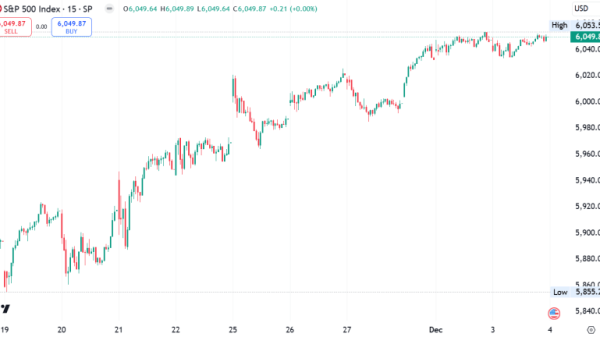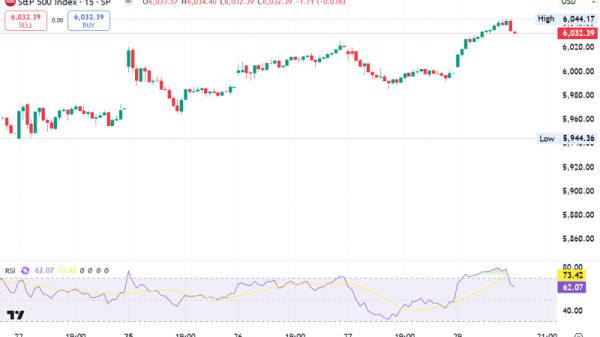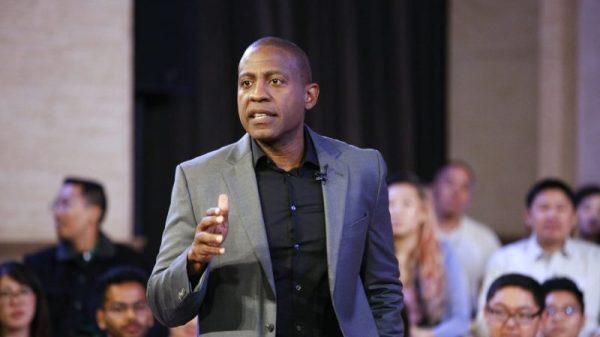Africa is home to the world’s largest free trade agreement, in terms of number of countries, territory, and population – the African Continental Free Trade Area (AfCFTA). Fifty-four of 55 African Union member countries have signed up to the deal which covers a market of 1.3 billion people and a combined GDP of $3.4 trillion.
It aims to boost economic growth, intra-African trade and investment across the continent, but although it was established in February 2020, implementing the agreement has been slow.
According to the Economic Commision for Africa, African countries continue to trade with the rest of the world more than among themselves. Inadequate infrastructure, a lack of finance, and weak governance are often to blame.
The following interview has been edited for clarity and length.
Eleni Giokos: When you took on the job as Secretary General, did you think it was going to be this intense to create so many different standards across the continent, and what was the most challenging aspect of putting this all together?
Wamkele Mene: I don’t think anybody would’ve imagined how challenging and enormous the task is. One of the reasons it’s challenging and will continue to be challenging for a long time is because we are a very, very fragmented market. We have 47 state parties to the agreement establishing the AfCFTA. Hopefully the remaining few countries will ratify soon. Within those 47, we have 42 currencies. We have countries that have a GDP per capita of $110, and then at the (other) end of that spectrum, a GDP per capita of $25,000. We have the least developed countries, we have landlocked countries, we have countries that are at variance from a macroeconomic policy standpoint. So, when you try to integrate and create a single market, economic integration is incredibly difficult.
EG: How has AfCFTA evolved since it came to inception, since it’s been launched on the continent?
WM: We were established in the middle of Covid-19 in February 2020. The following month, March 2020, is when the entire continent of Africa shut down – closure of borders, closure of airports, everything that is an instrument for trade was shut down. For the first six to nine months of the year, it was extremely difficult to get anything done.
Now, we have concluded all the protocols of the agreement – in other words, the legal construct – including very difficult areas such as digital trade; rules of origin of local content for textiles and clothing, for the automotive sector; creating a dispute settlement mechanism for an entire continent of 47 countries trading under the AfCFTA. All these rules are the nuts and bolts of trade, and I am very happy that we are now in transition from negotiating the rules to implementing the rules.
EG: In 2022, seven countries chose to pilot the African Continental Free Trade Area. How is that going, how is that being adopted, are you seeing the actual implementation?
WM: In 2022, seven countries were ready. By readiness, we mean they introduced the customs systems, they gazetted the AfCFTA into their national law. This October (there) will be 37, which means that 37 countries are at a state of readiness and are trading under the rules and the preferences.
CNN
EG: A lot of people in the private sector say they don’t really feel the impact of the African Continental Free Trade Area. They don’t, frankly, think it’s working. What do you say to that?
WM: We are integrating a market of 47 countries. The private sector is, as I always say, a co-pillar and a co-driver of market integration on the continent because it’s the private sector that trades. What I would say to them is this: we are overcoming 60 years of market fragmentation. It’s not going to happen overnight. And we know this from the experience of the European Union, which is arguably the most successful market integration model in the world today. It is (31) years since the establishment of the European Union, and yet it still continues to have challenges.
EG: Here’s one of the most controversial issues. Aliko Dangote has been talking about the fact that he needs 35 visas to travel across the African continent. If the richest man in Africa can’t get around easily, who can? How does this hinder people doing business cross-border?
WM: It’s a significant barrier and constraint to intra-Africa trade and intra-Africa investment. There are only four countries that to date have ratified the African Union’s protocol on movement of persons – only four countries. There is an emotional instinct against allowing movement of persons in some countries. In some countries there are legitimate national security concerns. So, we have to work hard to make sure that we convince countries about the importance of moving in the same direction on free movement of persons whilst at the same time addressing the national security concerns that those individual countries have.
EG: Can we even be having this conversation on integration if we don’t actually focus on infrastructure that links the continent up?
WM: More needs to be done to enable the continent of Africa to have the infrastructure that we need so that these goods can transit through borders seamlessly, efficiently, based on the rules that we have agreed to. So, we look forward to the operationalization of the Lobito corridor (a railway project that links link Angola, Zambia, and the Democratic Republic of Congo). All of these trade corridors that are embedded on world-class infrastructure will enable our continent to take drastic steps in boosting intra-Africa trade.
It’s not just about the trade rules, it’s about establishing the supply chain networks, the transport and logistics infrastructure that will support trade.
EG: It’s five years from now: What kind of conversation do you hope to be having with me about where we are?
WM: I think that what I’ve learned over the last four years in this position is that you have to be extremely patient. If in five years time we can demonstrate that we have moved intra-Africa trade from let’s say 15% to 25% or 30%, that will be a very important step forward.
I think we can double intra-Africa trade in the next five years, provided we introduce the tools that are required. So in other words, payment, ensuring that there is ease of access to intra-Africa payments; ensuring at the very minimum (there is) trade supporting infrastructure, particularly in the trade corridors (between) Central Africa, Eastern Africa, Northern Africa; and then third, we combine all of that with the political will and the rules that have been negotiated to create the single market. I believe that we’re going to get there.
In 2018, many (people) around the world, including on the continent of Africa, were saying that these Africans will negotiate forever and that the AfCFTA shall never be signed. And then of course, the AfCFTA was signed in Rwanda in 2018. Then they said it’ll never be ratified, and a year later the agreement was ratified – now 47 countries have ratified it. Now they’re saying that it shall not be implemented. In October, 37 countries will demonstrate implementation when they showcase the goods and the certificates of origin that they are trading in. At every milestone, there’s a new goal post for us to meet.




































